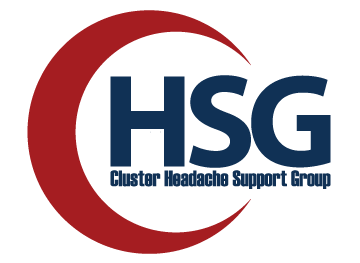Preventatives rarely stop cluster headache attacks altogether, but many do help to reduce the number of attacks and/or the severity of attacks.Any treatment that reduces the frequency and/or severity by 50% of greater is considered successful.
Preventive medicines for cluster headache are borrowed from other primary indications, including anti-convulsant (anti-epileptic), mood stabilization, and blood and heart medications (calcium channel blockers). There are no prescription medications specifically indicated for Cluster Headache and there is no drug to cure cluster headaches. The cost/benefit ratio for big pharma to invest in novel treatments for .05% of the population is not a very compelling business case. However, leveraging prior work and existing medicines is common practice in the pharmaceutical industry and the ability to take an existing drug to market against a new indication, such as cluster headache, is very appealing from a cost/risk perspective. For this reason, several existing drugs have been evaluated in clinical study and others have been used off label to treat cluster headaches.
You may find that your doctor adds medications more frequently than he/she eliminates them. As a general rule, these are powerful medications that carry with them some significant side effects. Some subtle and some right on the surface. It is a good idea to review all of your meds at every visit and eliminate any that are not working for you.
You will likely find that getting to the right medication that works for you will take some time. Every medication switch requires a washout period for the prior drug and a titration (ramping up) period for the new drug. Getting to a therapeutic level of the medicine in your bloodstream can require blood testing and dosage adjustments. These adjustment periods are not often pain free times and can be very frustrating. The only thing you can really do to shorten those trials is to communicate clearly and often with your doctor. If something is clearly not working, make a phone call. Often they can make adjustments to your script over the phone.
Another consideration is that your doctor may need to rule out other headache types and may prescribe certain medicines to test their effect on your pain. Indocin, for example is a highly effective treatment for hemicrania continua, a one-sided headache with symptoms similar to cluster headache. To rule out hemicrania, your doctor may prescribe Indocin over the course of several weeks. These trials are important because medicines that work for one headache type do not necessarily work for another. For example, high-flow oxygen has shown no benefit for migraine sufferers yet it works very well for cluster headaches.
Common cluster headache preventives
Verapamil
Brand Names: Calan, Covera, Isoptin, Veralan
Dose Range: 120-960mg
Comments: First-line preventative therapy for chronic cluster. Can be used in conjunction with sumatriptan and steroids. Extended release appears to be less effective against CH. Dosages above 600mg typically require ongoing EKG monitoring.
Primary indication: high blood pressure and angina (chest pain)
Topiramate
Brand Names: Topamax, Topiragen, Qudexy XR, Trokendi SR
Dose Range: 100-400mg
Comments: Anti-seizure medication that appears to be effective in both migraine and cluster headache. Anecdotal evidence shows a low efficacy rate for cluster headache. May cause confusion, fogginess, difficulty finding words. Primary indication: seizures in people who have epilepsy.
Lithium carbonate
Brand Names: Eskolith, Lithobid
Dose Range: 600-2400mg
Comments: Effective but high side effect profile make it less desirable.
Primary indication: episodes of mania in people with bipolar disorder.
Valproic sodium
Brand Names: Depakote
Dose Range: 500-3000mg
Comments: May be more effective in patients whose cluster headaches are accompanied by migraine-type features. Very important – ask for Depakote brand name prescription to avoid confusion with valproic acid.
Primary indication: mania in people with bipolar disorder
Naratriptan
Brand Names: Amerge, Naramig
Dose Range: 1-2.5mg
Comments: Remains effective in the body for a longer period of time than other available triptans BUT another triptan cannot be used concomitantly as abortive.
Primary indication: Migraine
Melatonin
Dose Range: 9-12mg
Comments: Natural sleep hormone that is not produced in normal amounts by cluster patients. Available OTC
Emgality® for Cluster Headache Relief
March 23, 2021If you have spent any time on the Cluster Headache Support Group (“CHSG”) Facebook page, then you probably have noticed many comments and questions about Eli Lilly and Company’s (“Lilly”) breakthrough episodic cluster headache treatment called Emgality®. Drawing on our members’ experiences as well as information received from The Lilly Answers Center, we have assembled ...
Refractory short-lasting unilateral neuralgiform headache attacks with conjunctival injection and tearing responsive to anti-calcitonin gene-related peptide monoclonal antibodies: A case report
September 25, 2021Short-lasting unilateral neuralgiform headache attacks with conjunctival injection and tearing (SUNCT) is a rare but severely disabling variant within the spectrum of trigeminal autonomic cephalalgia lacking evidence-based treatment.
Effect of calcitonin gene-related peptide (-receptor) antibodies in chronic cluster headache: Results from a retrospective case series support individual treatment attempts
September 25, 2021CGRP has an important pathophysiological role in cluster headache. Chronic cluster headache patients with insufficient response to other preventive treatments have been receiving individual off-label treatment attempts with CGRP antibodies.
Targeting CGRP for the Prevention of Migraine and Cluster Headache: A Narrative Review
September 25, 2021Calcitonin-gene-related peptide (CGRP), a neuropeptide broadly distributed in neuronal and non-neuronal regions throughout the body, plays a fundamental role in migraine and cluster headache (CH) pathophysiology.
CGRP, a target for preventive therapy in migraine and cluster headache: Systematic review of clinical data
September 25, 2021Targeting the calcitonin gene-related peptide (CGRP) pathway to treat these headaches may be the first focused therapeutic option to date, with the potential for promising efficacy.

